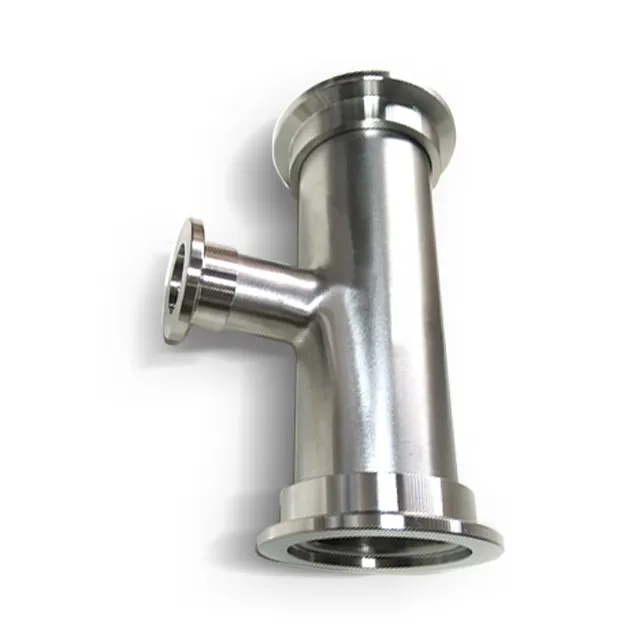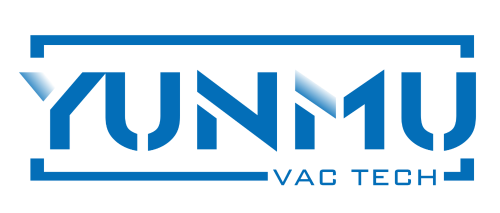How Custom Vacuum Systems Enhance Operational Performance
Optimized Efficiency Through Tailored Design
Tailored vacuum systems get built specifically for what different industries actually need in their day to day operations, which makes all sorts of processes run smoother. Studies from engineering publications show businesses that switch to well-designed vacuum setups often see around a 30% boost in how efficiently they operate. The reason? These systems can handle varying flow rates, adjust to different pressure demands, and work with whatever materials come through them, cutting down on both power usage and waste products. When manufacturers take time to customize their vacuum equipment, everything just fits better together. Think about food processing plants where contamination risks drop dramatically, or semiconductor factories where even tiny air leaks matter a lot. Getting those parameters right means fewer headaches down the line.
Reducing Contamination Risks in Critical Processes
Cutting down on contamination risks matters a lot in places where things need to stay super clean, like pharmaceutical labs and food processing plants. That's why companies build custom vacuum systems specifically for these tricky situations. Research from the industry shows these special vacuums cut contamination problems roughly around 40% in cleanrooms, though results do vary depending on setup. When manufacturers adjust their vacuum systems to handle those pesky airborne particles better, they end up keeping their facilities cleaner overall. These systems are designed with attention to detail, targeting all sorts of environmental issues that might lead to contamination. The result? Cleaner workspaces that meet strict safety requirements while still getting the job done efficiently day after day.
Precision Improvement in Manufacturing with Custom Systems
Semiconductor Fabrication and Microscale Accuracy
Semiconductor manufacturing depends on specialized vacuum systems to get those fine details right during fabrication. Without these custom setups, it would be nearly impossible to produce chips that work properly. The vacuum tech handles operations at microscopic scales where tolerances can be as tight as a few nanometers across. Big name manufacturers like Intel and TSMC have invested heavily in these systems because they know that even tiny deviations can ruin entire batches of semiconductors. When companies integrate these bespoke vacuum solutions into their production lines, they're able to hit those exacting specifications time after time. That's why we see so many fabs adopting this technology nowadays – it simply makes sense when producing cutting edge components for everything from smartphones to medical devices.
Medical Device Production and Sterility Assurance
Sterility remains absolutely critical when it comes to making medical devices. That's where custom vacuum systems come into play, creating clean manufacturing spaces free from unwanted particles. The right vacuum setup actually protects both patient safety and how well the devices work, since even tiny bits of contamination can mess up the whole production line. Industry data indicates something pretty significant: manufacturers who added vacuum tech to their operations saw better than 30% improvement in meeting those tough sterilization requirements. Makes sense really, because cleaner environments mean fewer problems down the road for everyone involved.
Industry-Specific Applications of Custom Vacuum Systems
Aerospace: Handling High-Stress Material Coatings
In aerospace manufacturing, custom vacuum systems are essential for creating those special coatings on materials that need to withstand intense stress and harsh conditions. When it comes to things like ceramic parts and composite materials, vacuum tech makes all the difference in how long these components last before needing replacement. According to several industry analyses, parts treated in vacuum chambers tend to last much longer in service. This means less frequent maintenance down the road and better overall performance when reliability matters most, especially during missions where failure isn't an option. The savings add up over time too, making vacuum coating a smart investment despite the initial setup costs.
Electronics: Enabling Thin-Film Deposition
Custom vacuum systems play a vital role in the electronics industry, especially during the thin film deposition process used to make things like transistors and other microcomponents. Without these systems creating the right vacuum environment, the layers deposited on surfaces tend to form unevenly, which can ruin how devices work altogether. Getting those layers just right makes all the difference in how well electronics perform overall. Industry experts have long known that keeping vacuum conditions stable throughout production leads to better quality semiconductors and electronic parts. That's why most modern fabrication facilities invest heavily in reliable vacuum technology for their manufacturing lines.
Key Design Considerations for Custom Vacuum Systems
Material Compatibility and Pressure Requirements
Material compatibility plays a key role in custom vacuum system design since incompatible materials might react chemically and mess up how the whole system works. When picking out materials, engineers need to make sure these components can handle whatever pressure range they'll face without breaking down. Engineering guidelines generally point toward matching material properties with actual pressure demands to get both lasting service life and good performance from the system. Real world experience shows us that getting this wrong leads to expensive repairs and unexpected shutdowns across many industries. For better results, it makes sense to choose materials specifically suited for each application environment. This approach cuts down on potential problems caused by unwanted chemical interactions that slowly eat away at system performance over time.
Integration with Automated Production Lines
When custom vacuum systems get properly integrated into existing automated production lines, factories see real gains in efficiency. The key here is getting those vacuum operations timed just right with the machine cycles so everything runs reliably and keeps moving through the production process smoothly. According to recent studies across various manufacturing sectors, businesses that have made the switch to automated vacuum systems typically report around a 20% boost in their overall productivity numbers. These systems allow for faster adjustments when needed while working hand in hand with other automated equipment on the shop floor. For manufacturers dealing with tight deadlines and high volume demands, having these vacuum systems work seamlessly with automation makes all the difference. It's why so many forward thinking plants are now prioritizing this kind of integration as part of their long term strategy for staying competitive in today's fast paced manufacturing landscape.

FAQ
What are custom vacuum systems designed for?
Custom vacuum systems are tailored to meet specific operational requirements, enhancing efficiency and reducing contamination risks across various industries.
How do custom vacuum systems minimize contamination?
They are designed to control environmental factors, reducing airborne particulates and maintaining cleanliness and safety in sensitive processes.
How do these systems benefit semiconductor fabrication?
Custom vacuum systems enable precision microscale operations, ensuring high-quality semiconductor products that meet industry standards.
What role do custom vacuum systems play in medical device production?
These systems ensure contamination-free environments, improving compliance with sterilization standards and ensuring the efficacy of medical devices.
Why are custom vacuum systems crucial for aerospace applications?
They apply high-stress material coatings, enhancing durability and performance reliability, vital for components used in extreme conditions.
How do vacuum systems affect electronics manufacturing?
Custom vacuum systems ensure precision in thin-film deposition, boosting the performance and quality of electronic components.
What are key considerations when designing custom vacuum systems?
Material compatibility and pressure requirements are crucial to ensure system efficiency and longevity.
How can custom vacuum systems integrate with automated production lines?
Integration involves synchronizing vacuum operations with workflows, enhancing reliability and throughput in production processes.
What future trends are emerging for custom vacuum technology?
AI-driven optimization and energy-efficient designs are transforming vacuum systems to enhance performance and sustainability.
Table of Contents
- How Custom Vacuum Systems Enhance Operational Performance
- Precision Improvement in Manufacturing with Custom Systems
- Industry-Specific Applications of Custom Vacuum Systems
- Key Design Considerations for Custom Vacuum Systems
-
FAQ
- What are custom vacuum systems designed for?
- How do custom vacuum systems minimize contamination?
- How do these systems benefit semiconductor fabrication?
- What role do custom vacuum systems play in medical device production?
- Why are custom vacuum systems crucial for aerospace applications?
- How do vacuum systems affect electronics manufacturing?
- What are key considerations when designing custom vacuum systems?
- How can custom vacuum systems integrate with automated production lines?
- What future trends are emerging for custom vacuum technology?

